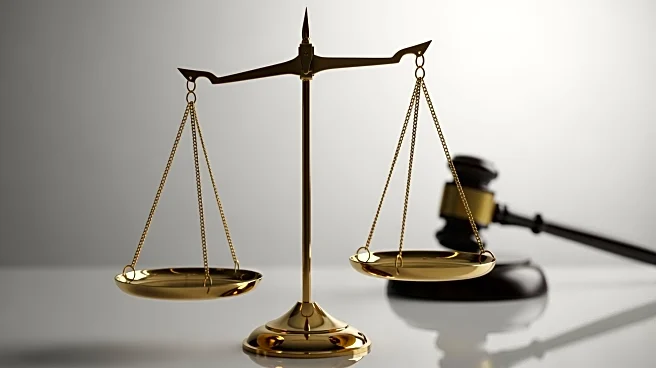What's Happening?
A California judge has dismissed a defamation lawsuit against Kim Kardashian after she mistakenly shared a photo of the wrong man, identifying him as Ivan Cantu, a death row inmate in Texas. The man in the photo, who resides in New York, sued Kardashian for defamation,
claiming emotional and mental anguish due to the error. Kardashian, who has been an advocate for criminal justice reform, posted the photo in an attempt to raise awareness about Cantu's case and the issues surrounding his conviction. Upon realizing the mistake, Kardashian promptly deleted the photo and issued a public apology. The judge ruled in favor of Kardashian, citing California's anti-SLAPP law, which protects individuals from lawsuits that aim to suppress free speech.
Why It's Important?
The dismissal of the lawsuit underscores the legal protections afforded to public figures under the First Amendment, particularly in cases involving freedom of speech and public interest. Kardashian's advocacy for criminal justice reform highlights the influence celebrities can have on public discourse and policy. The ruling also emphasizes the importance of accuracy in public statements, especially when they pertain to sensitive legal matters. While Kardashian's intentions were to support a cause, the incident serves as a reminder of the potential consequences of misinformation, even when unintentional.
What's Next?
Following the court's decision, Kardashian is expected to file a proposed order and judgment to formalize the dismissal of the lawsuit. This case may set a precedent for similar defamation claims involving public figures and their use of social media to engage with public issues. Legal experts and advocates may continue to debate the balance between free speech and the responsibility to avoid harm through misinformation.
Beyond the Headlines
The case highlights the ethical considerations celebrities face when using their platforms for advocacy. While their influence can drive significant attention to important issues, it also comes with the responsibility to ensure accuracy and avoid unintended harm. This incident may prompt discussions on the role of public figures in legal advocacy and the potential need for more stringent guidelines when engaging with sensitive topics.















